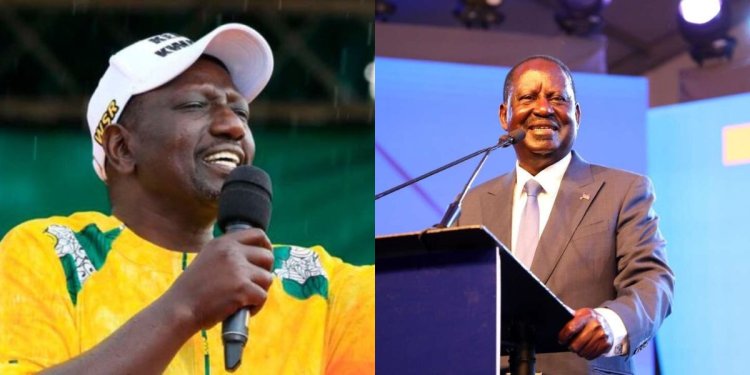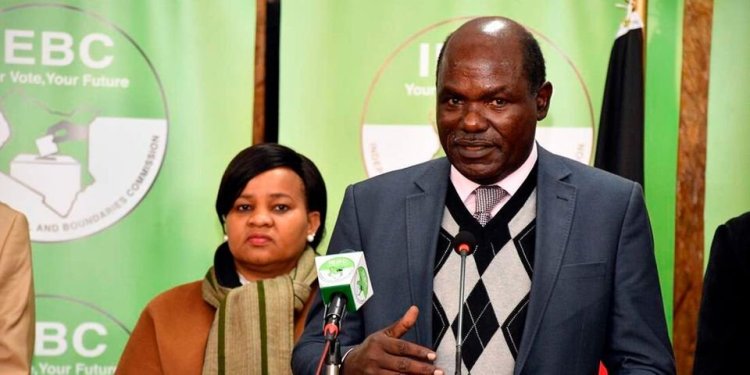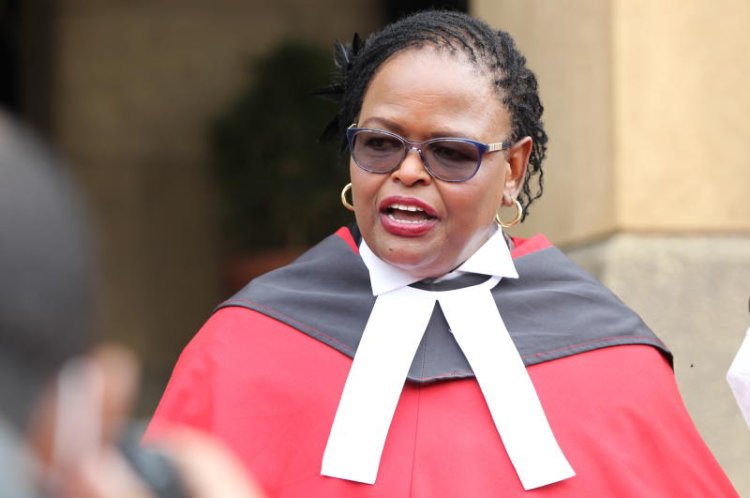Timelines By Supreme Court On Presidential Election Petitions
Official IEBC results tallied so far revealed that Ruto is ahead of Raila, with 240 out of 292 constituencies announced

The Supreme Court is preparing itself to handle any petitions that may arise following the declaration of the presidential results by the Independent Electoral and Boundaries Commission (IEBC).
It has released timelines in which the presidential election petitions will follow, after the race pitting the two leading candidates, William Ruto of Kenya Kwanza and Raila Odinga of the Azimio la Umoja coalition.
Official IEBC results tallied so far revealed that Ruto is ahead of Raila, with 240 out of 292 constituencies announced, but both of their camps have already claimed victory in the election, despite being a water-tight race at the moment.
Either of the camps could head to the Supreme Court if IEBC chairman, Wafula Chebukati's official announcement goes against their expectations.

According to the Constitution of Kenya, Chebukati has until Tuesday, August 16 to announce the winner.
Either Ruto, Raila or George Wajackoyah of the Roots Party will have to file a petition challenging the election results, within seven days from the date of declaration by the IEBC.
After being served, the winner will have four days to file a response to the petition and the loser will be given 24 hours to file a rejoinder. A rejoinder may include a response to the new facts raised by the winner in their submissions.
Both parties will be given two days to ask the judges to make specific orders to help their cases, by commanding something to be done or prohibiting it. This will be followed by applications by third parties to be enjoined as friends of the court (amicus curiae), which is expected to take one day.
The Supreme Court will then be required to convene a pre-trial conference within eight days from the filing of the petition. A pre-trial conference provides an informal setting for all parties and the Judge to: identify the facts that are agreed upon or are in dispute; clarify the issues between the parties; and. attempt to reach a resolution by way of a voluntary agreement.
The judges will then be required to hear the election dispute petition immediately after the pre-trial conference and proceed to deliver a judgement within 14 days of the filing of the petition.
In the event the results are contested, all eyes will be on Chief Justice Martha Koome in delivering the determination.
The last Chief Justice to dismiss the election results was her predecessor, David Maraga, who famously dismissed the results of the August 8, 2017 elections, forcing the country into fresh polls which President Uhuru Kenyatta ended up winning unopposed.
The Judiciary announced that it will consider all poll disputes as the wait for an official winner of the presidential race continues.
“Judiciary Committee on Elections chaired by SC Judge Mohammed Ibrahim prepares the institution to handle electoral disputes.
"It looks at training, financial & HR aspects to ensure disputes are efficiently dealt with. During this season, approach the court with confidence. We're ready,” the Judiciary announced in a statement.
The JCE collaborated with the Kenya Judiciary Academy to conduct electoral dispute resolution training for the judges between February and July 2022.


 admin
admin 




